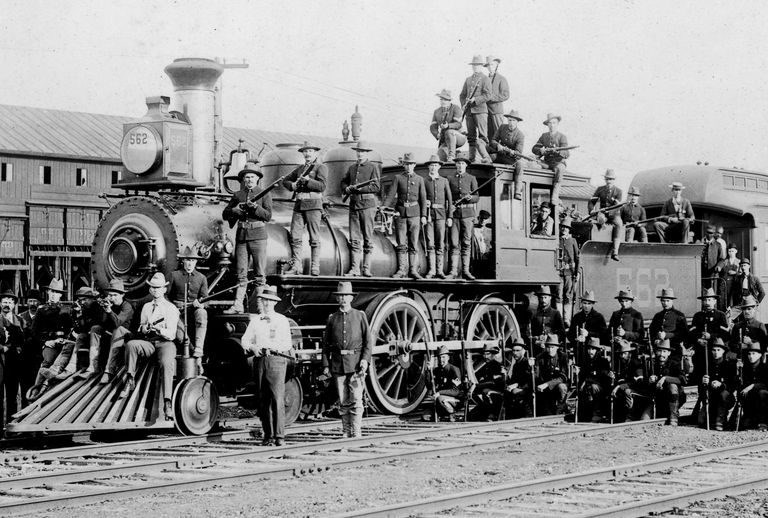Long before it became most commonly associated with cookouts and shopping deals, Labor Day was created as a tribute to the American worker

Labor Day, today commonly associated with the end of Summer, cookouts and shopping deals, was initially created to honor the contributions of American workers at the height of the Industrial Revolution, one of American labor history's darkest periods.
In the late 1800s, many Americans worked 12-hour days and seven-day weeks - just to be able to afford a basic living. People of all ages, mostly the poor and immigrants, faced extremely unsafe working conditions, often with little breaks. Also children, as young as 5 or 6, toiled in mills, factories and mines across the nation.
With the rise of the manufacturing industry, labor unions gained prominence and significance. They began organizing strikes and rallies to protest poor employment conditions, and to fight for better hours and pay. On September 5, 1882, 10,000 workers took time off to march from New York's City Hall to Union Square - the first unofficial Labor Day parade unfolded. The movement spread across the country and the idea of a "workingmen's holiday," celebrated on the first Monday in September, was born. Yet, even though many states passed legislation to recognize the event, it took congress 12 more years to legalize the holiday.
In May 1984, the "Pullman Strike," initiated by employees of the Pullman Palace Car Company and supported by a universal boycott organized by the American Railroad Union, brought the railroad service to a nationwide standstill. In response to the strike, the federal government sent troops to Chicago, causing a wave of riots and the deaths of more than a dozen workers.
Following the unrest and in an attempt to repair ties with American workers, Congress passed an act making Labor Day a legal federal holiday.
Today, more than a century later, Labor Day is still celebrated all across the United States; for many Americans, particularly children and young adults, it now represents the end of the summer and the start of the back-to-school season.



